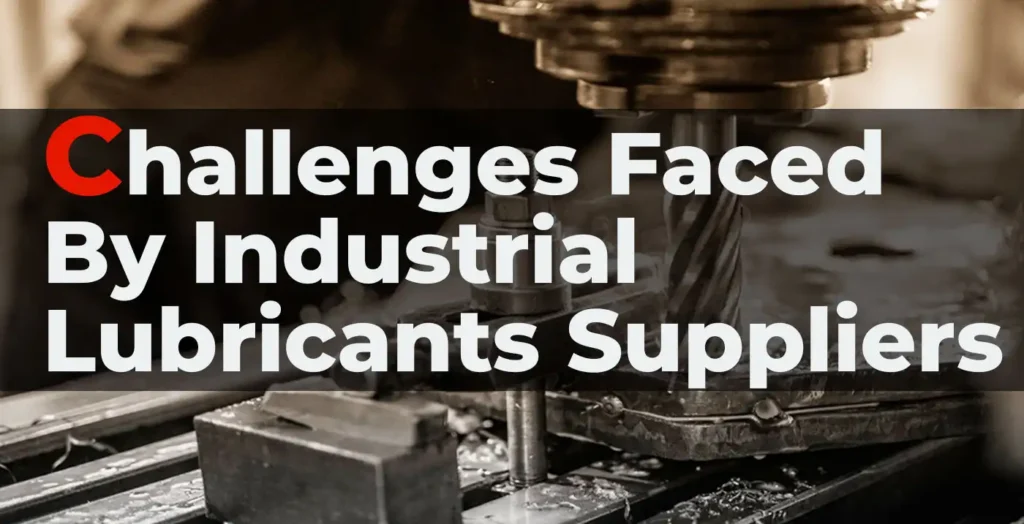
Globalization showed a broad and new perspective on the business world. The interconnectedness and interdependence made the businesses more profitable and popular. The flow of goods, services, ideas, and people across the globe resulted in increased global integration and interaction. Because of these changes in communication, transportation, and international business, there is no doubt about the challenges that globalization brings out. For lubricant manufacturing industries, globalization brings both opportunities and challenges. Considering challenges, the winds of globalization in the raw materials and additive market are having a significant impact. All kinds of lubricant manufacturers will be affected by these consequences. However, the industrial lubricant sector is becoming more complex for users and suppliers than other lubricants suppliers. Therefore, in this blog, we will delve into the globalization challenges for industrial lubricants suppliers.
Industrial Lubricants Specialities
To put it simply, industrial lubricants are the lifeblood of industries. For any industry to function properly they need to ensure the smooth operation of engines and machinery. And here, lubricants help to ensure proper lubrication and reduce friction, dissipate heat, and extend the lifespan of machines. Industrial lubricants are designed to minimize the friction between the moving parts within the machine. Also, they need to understand the diverse operating conditions that machines face, from extreme temperatures to heavy loads.
About 35 percent of the total lubricant market are industrial lubricants. The metalworking fluids and greases cover 10 percent of the total lubricants market. And this growth rate in metalworking fluids is very significant in the lubricant market. However, the additive and raw material market for these metalworking fluids is only around 15 percent of the total market size. Even though metalworking fluids represent about 1.9 million metric tons of the global market, the size of its raw material and additive package market is just under 300,000 tons. In this industry, emulsifiers and corrosion inhibitors control more than 50 percent of the water-based metalworking fluid additive technology.
Moreover, the lubricant manufacturers and additives suppliers are facing some other issues also. These issues include global environmental, health, and safety expectations; market overcapacity; increasing regulatory restrictions; cultural differences; currency fluctuations and economic instability; and the globalization of end users.
Diverse Regulatory Landscapes Across Different Regions
One of the most important challenges for industrial lubricants suppliers due to globalization is the vast and diverse regulatory environments across the world. Globalization indeed brings out the opportunity to expand the lube business to other countries. However business across various countries poses the challenge of coping with a set of different rules, regulations, and requirements. Each nation has its own set of rules, standards, and compliance requirements based on its weather conditions and cultural standards. These unique requirements of each nation make it a daunting task for lubricant suppliers to ensure that their products meet the criteria in each market.
This can be tackled by in-depth research and collaboration with local experts. A detailed investigation of the specific requirements of each region will help the lubricant suppliers to a successful globalization.
Cultural Diversity
Cultural imperialism is a result of globalization. And in recent days, we’ve seen both the positive and negative sides of these cultural adaptations. Cultural diversity is among the most beautiful aspects of globalization, but when it comes to industrial lubricant manufacturers, it poses some significant challenges.
Communication is one of the crucial components of a successful business. To convey the ideas, principles, and rules of your business, good communication is a must. But, in the case of globalization communication gap is a difficult barrier for lubricants suppliers to cross. Along with the communication gaps, varying business etiquettes and diverse work cultures can also hinder your effective collaboration with international teams.
To bridge these gaps, it is better to invest in cultural training for your employees and foster a culture of inclusivity. Understanding the different cultures and practices of different nations will help you to build a stronger relationship with your clients.
Market Competition
As a lubricant supplier, market competition is never gonna be a new thing to you. But, when you plan to expand your business on a global scale you need to expect the competition is a far greater level. After entering the global business, you’ll find yourselves in a fiercely competitive environment. When it comes to pricing, product differentiation, and market share both the local and global competitors are alike.
However to compete and thrive in a fierce market competition, lubricant manufacturers need to follow and ensure efficient quality control methods to develop innovative and unique lubricant products. Adapting to advanced technologies for lubricant formulation, making continuous improvements, providing customized solutions, and creating strong relationships with customers can give you a competitive edge in the lubricant market.
Currency Fluctuations and Economic Instability
The economy has a significant impact on global lubricant business. The currency fluctuations and economic instability can easily influence the financial performance and business stability of lubricants suppliers.
The cost of raw materials and transportation is the most prominent expense when it comes to global lubricant supply. Therefore, the changes in exchange rates or currency value will easily affect the lubricant market. Following the direction of change in currency values, the business can often provide a route to either increased costs or reduced revenues. For instance, if the currency of a lubricant supplier’s raw material source weakens against their currency, the cost of importing those materials may rise.
Economic instability causes the decline of industrial activities, leading to the reduced demand for lubricants. Mostly the economic downturns are caused by decreased consumer spending and reduced business investments. This instability will make suppliers experience a decrease in orders and poor financial performance.
Environmental Expectations
The concept of environmental impact and sustainability policies changes from one nation to another. So, it is crucial for all the lubricants manufacturing companies to align with the environmental standards of each nation. In recent years, the relationship between environmental sustainability and business development has become a major topic for debate. Even end users have global environmental safety expectations. Therefore it is necessary for lubricant manufacturers to take environmental safety measures during the formulation of industrial lubricants. Producing and supplying eco-friendly lubricants make you get global recognition in the lubricant industry. Adopting sustainable practices and eco-friendly technologies will make this task easier.
End-User Expectations
The increasing awareness of safety in the workplace has led to having second thoughts about using lubricants in the workplace. The metalworking fluid sector, where workers come into direct contact with the fluid frequently, saw the biggest impact. Considering industrial lubricants, continuous and direct contact may cause health issues. This poses safety concerns and becomes a crucial challenge for industrial lubricants suppliers.
As a result, the lubricant suppliers changed the formulation components and formulated lubricants that preferably do not carry any hazard warning labels. But, because of the more stringent regulatory restrictions, the manufacturers have to find more methods and techniques to create non-hazardous lubricants. They often looked outside traditional chemistries.
Moreover, the components that provide long-term stability and control most probably carry hazardous labels. As a result, it has become a complex challenge for lubricant manufacturers to develop a long-lasting lubricant with non-hazardous components.
Another concern is that, today most of the customers are increasingly looking for lubricants that improve their industrial machines efficiency. In high-speed grinding, fluids are adapted to accommodate the requirements of faster cutting. However, the lubricant formulation technologies that operate at high cutting speed and machine tools with smaller sumps can result in increased foaming. Also, in recent years companies are increasingly using magnesium alloys for machining, but as water and magnesium do not blend well, it causes issues in fluid stability, safety, and long-term performance.
In conclusion, the industrial lubricant industry is facing many challenges due to globalization. The complexity of requirements, stringent regulatory conditions, economic downturns, and the changes in the supply market are making the marketplace more difficult and competitive. The employee safety requirements and conditions made the lubricants suppliers modify and update the fluid formulations. The increased market competition and stringent regulations have created difficulties in the financial progression of suppliers.
To overcome these challenges, it is better to adapt new strategies and technologies into the business. Considering the supply of lubricants, the marketplace mostly favours the more specialized and industry-focused suppliers. Therefore, investing in innovative ideas and technologies will benefit a lot. Business partnerships are also greatly beneficial for lubricants suppliers. Since some companies are best in manufacturing while some are best in development of chemistries. So, a collaboration approach will reap some benefits.
Regardless of the approach chosen, it is necessary to manage and meet customer expectations. This will contribute to thriving in a globalized market.


